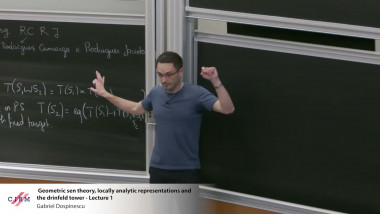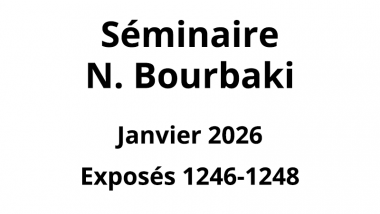Maximally predictive ensemble dynamics from data
Apparaît dans la collection : 2022 - T1 - WS2 - Mathematical modeling and statistical analysis in neuroscience
We leverage the interplay between microscopic variability and macroscopic order to connect physical descriptions across scales directly from data, without underlying equations. We reconstruct a state space by concatenating measurements in time, building a maximum entropy partition of the resulting sequences, and choosing the sequence length to maximize predictive information. Trading non-linear trajectories for linear, ensemble evolution, we analyze reconstructed dynamics through transfer operators. The evolution is parameterized by a transition time $\tau$: capturing the source entropy rate at small $\tau$ and revealing timescale separation with collective, coherent states through the operator spectrum at larger $\tau$. Applicable to both deterministic and stochastic systems, we illustrate our approach through the Langevin dynamics of a particle in a double-well potential and the Lorenz system. Applied to the behavior of the nematode worm $C. elegans$, we derive a “run-andpirouette” navigation strategy directly from posture dynamics which is orders of magnitude faster. We demonstrate how sequences simulated from the ensemble evolution recover effective diffusion in the worm’s centroid trajectories and introduce a top-down, operator-based clustering which reveals subtle subdivisions of the “run” behavior.











![[1246] The model theory of perfectoid fields](/media/cache/video_light/uploads/video/SeminaireBourbaki.png)
